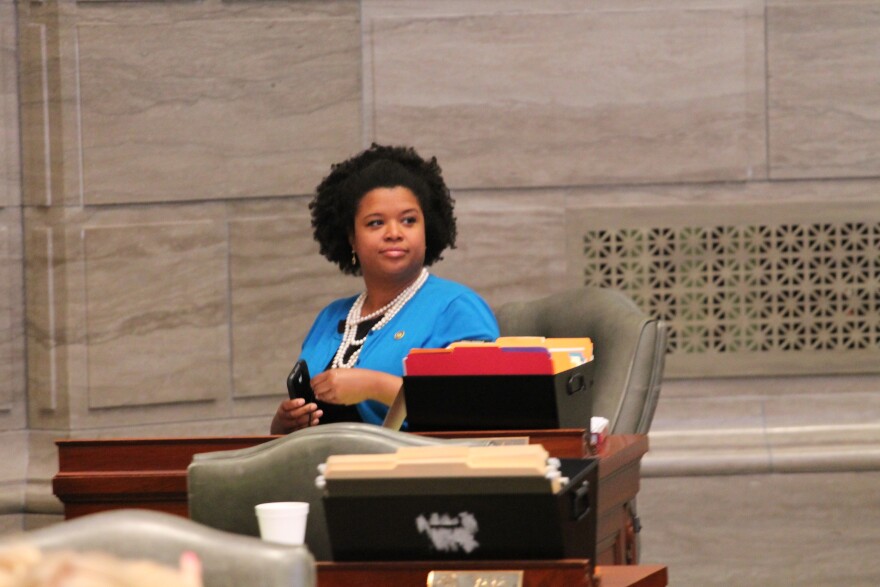Legislation is advancing through the Missouri General Assembly to make it easier to dissolve St. Louis County’s municipalities.
State Rep. Bob Burns’ bill would reduce the number of signatures needed to dissolve a St. Louis County city or town. Currently, groups need to gather the signatures of 50 percent of registered voters in a municipality to put dissolution on the ballot. Burns’ bill would reduce that threshold to 25 percent.
The bill would also lower the percentage of votes needed to disincorporate a city from 60 percent to 50 percent. It would also allow third-class cities, charter cities and home-rule cities in St. Louis County to go through the procedure to disincorporate. (Currently, state law only provides an avenue for villages and fourth-class cities to dissolve. Click here to see how a city's class is defined.)
In an interview, Burns, D-St. Louis County, said that state law makes it impractical to gather the signatures needed for a disincorporation election. For instance, if residents wanted to dissolve a larger city like Ferguson, they’d need to gather about 6,000 signatures. (And, to be clear, no state law has procedures for dissolving a charter city like Ferguson.)
“It’s hard to get out and get 50 percent plus one on signatures. People just don’t have the time,” Burns said. “However, they’re very dissatisfied with their own municipality and their own little city.”
Burns was a key player in dissolving St. George, a south St. Louis County town that had issues with policing for years. He often decried municipalities as a wasteful layer of government – especially since St. Louis County’s government has more sophisticated services like the St. Louis County Police Department.
“There’s a whole a lot of issues that (disincoporation) will settle,” Burns said. “You see the sophistication of St. Louis County with an internationally accredited police department; Chief (Jon) Belmar is the crème-de-le-crème of law enforcement. They have a wonderful police department. They have all the equipment needed to conduct the business. I think it’s the right way to go; that’s why I brought the bill up.”
Burns’ bill unanimously advanced out of the House Local Government Committee. It needs to get out of the Select Committee on State and Local Government to get to the House floor.
Prominence and pushback
St. Louis County’s multiplicity of municipalities has been debated for years. But after Michael Brown was killed last year, national publications expressed bewilderment that the county had so many towns and cities, as well as separate police departments and municipal courts.

State Sen. Jamilah Nasheed, D-St. Louis, then proposed a bill to abolish all of the county’s villages. She said many of these small cities were “operating on the backs of the indigent, of the poor.”
“If you cannot find other ways to sustain your budget, then you really need to demolish those villages,” Nasheed said. “I really don’t think that people should be fined simply because (villages) are trying to maintain their budgets.”
State Rep. Clem Smith, D-Velda Village Hills, represents scores of small municipalities in north St. Louis County. He has some misgivings about Burns’ bill – and is outright opposed to Nasheed’s legislation abolishing villages by legislative fiat.
“I actually live in a village – Velda Village Hills in St. Louis County. I love where I live,” Smith said. “The people love where they live, too. And they do not want someone’ not from the area to say ‘hey, let’s just eliminate villages.’ It does nothing to stop the Ferguson situation. If you actually look at Ferguson, they’re not a village. If you actually look at some of these other municipalities with issues with law enforcement, they’re not villages either. For the most part, they’re different classes of cities.”
State Sen. Maria Chappelle-Nadal, D-University, represents more than 40 municipalities within her Senate district. She’s strongly opposed to Nasheed’s bill, and is skeptical that St. Louis County government would provide better government service.

“The approach that you would want to take with those municipalities has to be measured and it has to be practical,” said Chappelle-Nadal, who has been critical the way county police handled protests over Brown’s death. “If we’re going to have municipalities, multiple municipalities, we’re going to have to figure out what works, what doesn’t work. At the end of the day, I care about service delivery. I don’t have a lot of faith in St. Louis County government right now.”
For her part, Nasheed said she’s received plenty of pushback from local officials – especially African-American mayors. But she said her bill is “about individuals who live in those villages to drive without the fear of fine being tacked onto their backs … simply to sustain a budget.”
Burns said he prefers that citizens, and not the legislature, decide whether to dissolve a town or not. And he predicts that many would disincorporate if they had the chance.
“With the sophisticated services of St. Louis County government, there’s no reason to have a municipality other than the abuses we’ve found in Ferguson courts and Ferguson Police Department,” Burns said.






